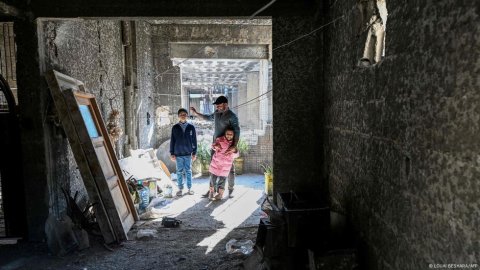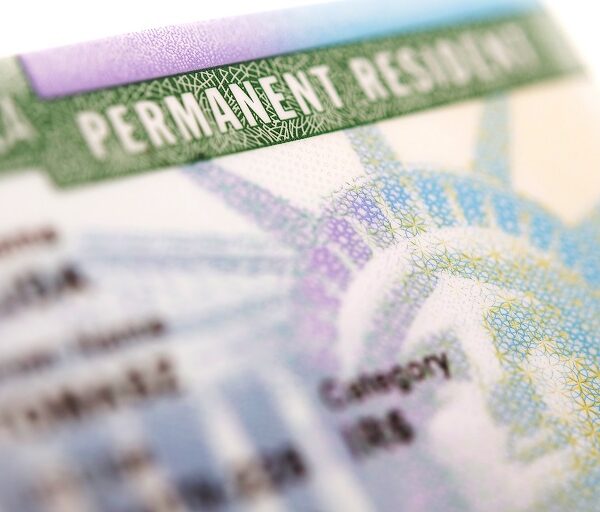Migrants Face Harsh Conditions as Immigration Offices Stay Closed
As the world grapples with unprecedented challenges, one of the most pressing issues is the plight of migrants. Across various regions, migrants are facing harsh conditions, particularly as immigration offices remain closed. This scenario has given rise to significant hardships, as individuals and families seek legal status and security in new countries.
The Impact of Closed Immigration Offices
The closure of immigration offices has led to a backlog of applications and an increase in uncertainty for many migrants. With the inability to access essential services, many find themselves in dire situations. This has resulted in the following challenges:
1. Prolonged Waiting Periods
Migrants are often left in limbo, waiting for extended periods to receive updates on their immigration status. The prolonged waiting times can exacerbate feelings of anxiety and hopelessness.
2. Exposure to Harsh Weather Conditions
In many cases, migrants have had to queue outside immigration offices for long hours, often in severe weather conditions. This not only affects their physical health but also their mental well-being. Many are exposed to cold temperatures, rain, or even extreme heat, which can lead to serious health issues.
3. Lack of Access to Basic Necessities
With offices closed, migrants struggle to access basic necessities such as food, water, and sanitation facilities. This can lead to increased vulnerability, especially for families with children and elderly members.
Reasons Behind Office Closures
The closures of immigration offices can be attributed to various factors, including:
1. Health and Safety Concerns
The ongoing global health crisis has necessitated the closure of many public offices to ensure the safety of both staff and visitors. However, this has inadvertently resulted in significant delays and complications for migrants.
2. Administrative Challenges
Many immigration systems are already burdened with administrative challenges. The pandemic has exacerbated these issues, leading to closures and decreased functionality of immigration offices.
3. Policy Changes
In some regions, changes in immigration policies have led to confusion and uncertainty regarding the operational status of offices. This has left many migrants unsure of where to turn for assistance.
The Human Cost of Inaction
The human cost of these closures cannot be overstated. Beyond the logistical challenges, migrants face emotional and psychological tolls as they navigate their uncertain futures.
1. Psychological Impact
The stress of uncertainty can lead to severe mental health issues. Many migrants experience anxiety, depression, and a sense of isolation due to their precarious situations.
2. Community Responses
In response to these challenges, many community organizations and NGOs have stepped up to provide support. These organizations offer essential services such as food, shelter, and legal assistance to help migrants cope with their circumstances.
Possible Solutions to Alleviate the Situation
While the situation remains challenging, there are potential solutions that can help alleviate the hardships faced by migrants:
1. Temporary Alternative Services
Governments can consider implementing temporary alternative services, such as online consultations or mobile units, to assist migrants while offices remain closed. This would ensure that individuals can still receive the help they need without the risks associated with queuing outside.
2. Increased Funding for Support Services
Increasing funding for community organizations that assist migrants can provide much-needed resources to support individuals and families. This includes food banks, counseling services, and legal aid.
3. Clear Communication from Authorities
Authorities must provide clear and timely communication regarding the status of immigration offices and any changes in policies. Transparency can help alleviate some of the anxiety faced by migrants and provide them with a clearer path forward.
Conclusion
The ongoing closure of immigration offices has placed a tremendous burden on migrants, who are already navigating challenging circumstances. As they face harsh conditions while waiting for their cases to be processed, it is crucial for authorities and communities to come together to address these challenges. By implementing temporary solutions, increasing support, and ensuring clear communication, we can help ease the burden on those who are simply seeking a better life.
Migrants are resilient individuals, and with the right support, they can overcome these obstacles and contribute positively to their new communities. It is essential that we prioritize their needs and work towards a more humane immigration system that recognizes the dignity and rights of all individuals, regardless of their status.







